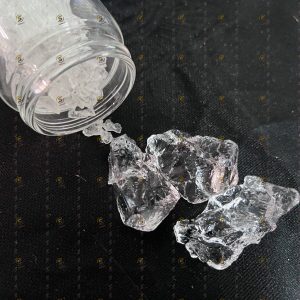Hydrogels are transforming agricultural practices by improving soil moisture retention, reducing water usage, and supporting plant growth. This guide delves into the diverse applications of hydrogels in agriculture, including biodegradable options, super absorbent polymers (SAPs), and their overall impact on farming.
What are Hydrogels?
Hydrogels are polymers known for their ability to absorb and hold water, which they gradually release over time. In agriculture, these materials are crucial for enhancing soil properties, conserving water, and promoting healthier plant development.

Types of Agricultural Hydrogels
- Biodegradable Hydrogels: These eco-friendly hydrogels decompose naturally in the soil, providing long-term moisture benefits without harming the environment.
- Super Absorbent Polymers (SAPs): SAPs can absorb immense quantities of water, making them ideal for regions with limited water resources.
Advantages of Using Hydrogels in Agriculture
- Enhanced Water Retention: Hydrogels can retain water many times their weight and release it gradually, reducing irrigation needs and conserving water resources.
- Improved Soil Structure: By enhancing soil aeration and preventing compaction, hydrogels foster a robust root system.
- Sustained Nutrient Supply: Hydrogels can hold onto nutrients, making them available to plants over extended periods and reducing the necessity for frequent fertilization.
農業への応用
- Soil Amendment with Hydrogels: Incorporating hydrogels into soil increases its water retention capacity, which is especially beneficial for sandy soils that typically drain quickly.
- Hydrogel Powders: These easy-to-apply powders are suitable for various agricultural environments, from nurseries to large-scale farms.
- Sodium Polyacrylate in Agriculture: Known for its high absorbency and cost-efficiency, sodium polyacrylate is widely used in areas with unpredictable rainfall.
Hydrogel Production and Suppliers
The manufacturing of hydrogels involves creating polymers that can effectively absorb and release water. Numerous companies specialize in producing agricultural hydrogels, offering products tailored to different soil types and agricultural needs.
The Future of Hydrogels in Agriculture
As global water scarcity becomes more pronounced, the use of hydrogels in agriculture is expected to increase. Ongoing innovations in biodegradable hydrogels and more efficient super absorbent polymers will further enhance their practicality and sustainability.
Key Concepts and Keywords
- Agricultural Hydrogel
- Hydrogel for Agriculture Manufacturers
- Applications of Hydrogels in Agriculture
- Super Absorbent Polymers in Agriculture
- Water Absorbent Polymers for Agriculture
- Use of Hydrogels in Agriculture
- Agricultural SAP (Super Absorbent Polymer)
- Hidrogel Agrícola
Hydrogels offer a promising solution for sustainable agricultural practices, addressing water management challenges and improving crop yields. By adopting these advanced materials, farmers and agricultural professionals can achieve greater efficiency and resilience in their operations.
This revised article highlights the essential role of hydrogels in modern agriculture, focusing on their benefits, applications, and potential for fostering sustainable farming practices. By leveraging these innovative materials, the agricultural sector can better manage water resources and enhance soil health.

